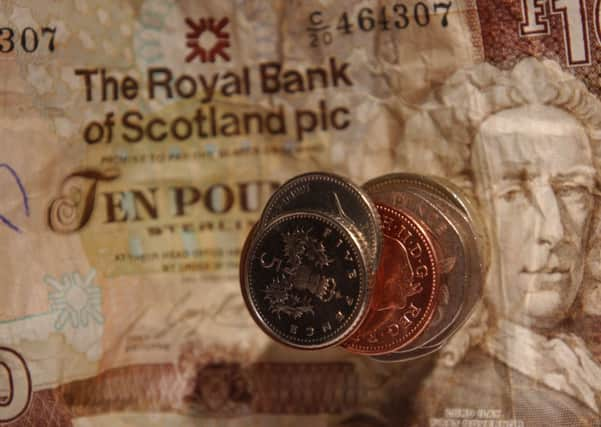Moving cash from Scotland would be premature


Given the inherent uncertainty on the likelihood of a currency union due to the stand-off between the UK and Scottish governments, we cannot provide definitive advice with any confidence about any outcomes at this stage. The reticence on the part of the Scottish Government to outline its favoured alternative should it not realise a full and formal sterling union is only adding to the uncertainty.
However, in all of this unpredictability we believe we can identify five distinct possible scenarios. The first two, by virtue of the continued use of sterling, would avoid any currency risk between the two nations:
Advertisement
Hide AdAdvertisement
Hide Ad• The UK government capitulates and agrees to a full formal sterling union. Scotland’s ability to negotiate this outcome is strengthened by the bargaining-chip issue of legacy UK debt, and how much it would agree to take on after independence – a greater amount (in exchange for a formal agreement on the pound) would alleviate some of the burden on the rUK. Militating against a formal union, on top of the stated opposition of the UK government, are the likely differences in fiscal approach between the two governments in the immediate post-referendum period, with the UK expected to maintain austerity while the Scottish government would likely be more sympathetic to increased government spending.
• Scotland fails to agree a formal currency union and decides to go down a route of dollarisation (named in relation to countries taking on the US currency informally), where Scotland adopts the pound but with no formal input into monetary policy. With no Scottish central bank there would be no credible lender of last resort, leaving Scottish banks with little choice but to move their registered offices into another jurisdiction, most probably in London. It would also make it more likely that the Scottish Government would have to adhere to policies unsuited to the country’s economy, and may also slow the adoption of the euro at a later stage as having a central bank is understood to be a key requirement in order to join the single currency.
As the next three scenarios involve leaving sterling behind, the adoption of any would lead to currency risk for transactions between rUK and Scotland:
• The prospect of taking on the pound with no input into monetary policy is too risky for the Scottish Government. seeks to set up its own currency (which means that policy could be more easily adapted to Scottish interests), probably pegged to the pound. The eventual adoption of the euro at a later stage could be the most likely end result given the pro-European viewpoint of the Scottish Government.
• The Scottish government, as above, decides to set up a new currency but this time free floating, creating more currency risk in relation to sterling. he free float would mean that policy could be wholly focused on Scottish interests, although this would be tempered by the possible end result of membership of the euro.
• Scotland moves to adopt the euro as soon as possible after independence. Within the euro, interest rates would be set for the entire eurozone and therefore not necessarily for Scotland. This swift adoption of the euro is an unlikely outcome due to the practicalities of negotiating entry via the pathways required by Brussels.
Many of our clients recognise there is significant currency uncertainty in relation to their personal situations and their businesseswhich will not be resolved until at least September in the case of a No vote, and over a much longer period should Scots vote Yes. Some individuals, families and family businesses have dealings throughout the UK, and given the uncertainty of the currency situation, are opening accounts with English banks to ensure they have an available rUK-based sterling facility into which they can move cash relatively quickly if necessary as the situation unfolds. We will continue to keep our clients updated on this important matter and on what steps they may wish to take to mitigate any uncertainty.
Our advice to clients is that any move of cash deposits out of Scotland would be premature but that the position should be carefully reviewed after the referendum result is known.
• Alex Montgomery is CEO at Turcan Connell Asset Management